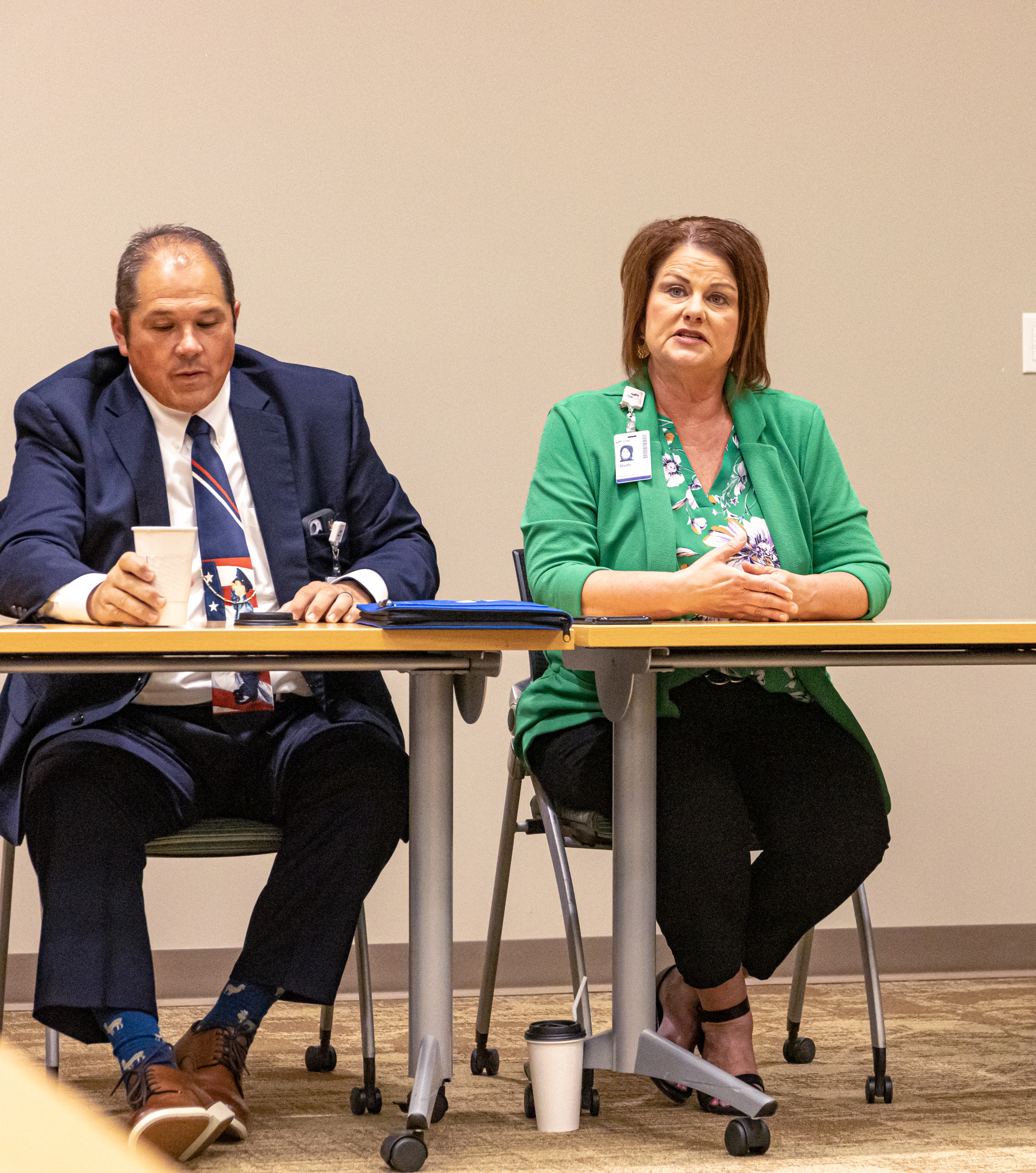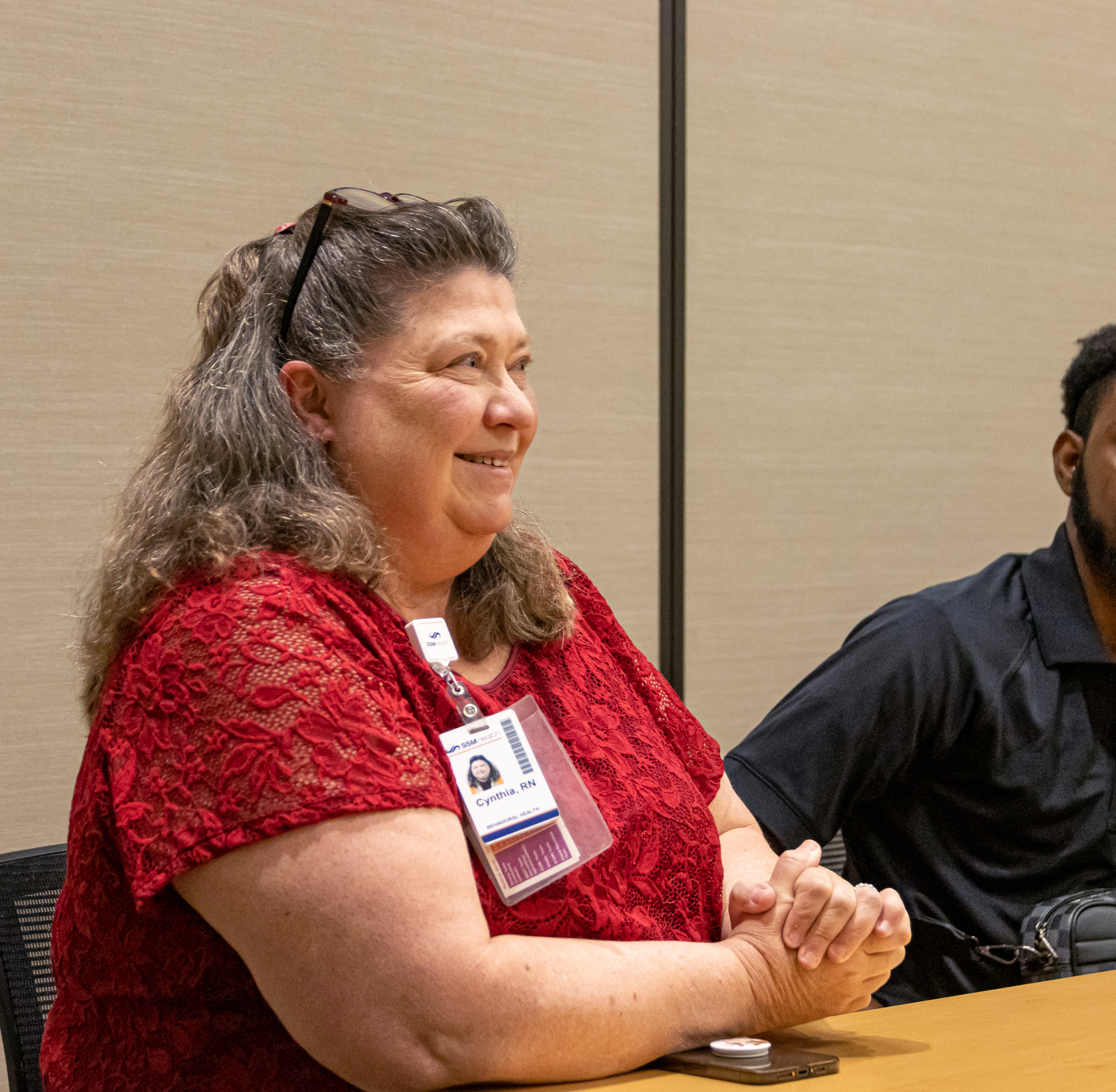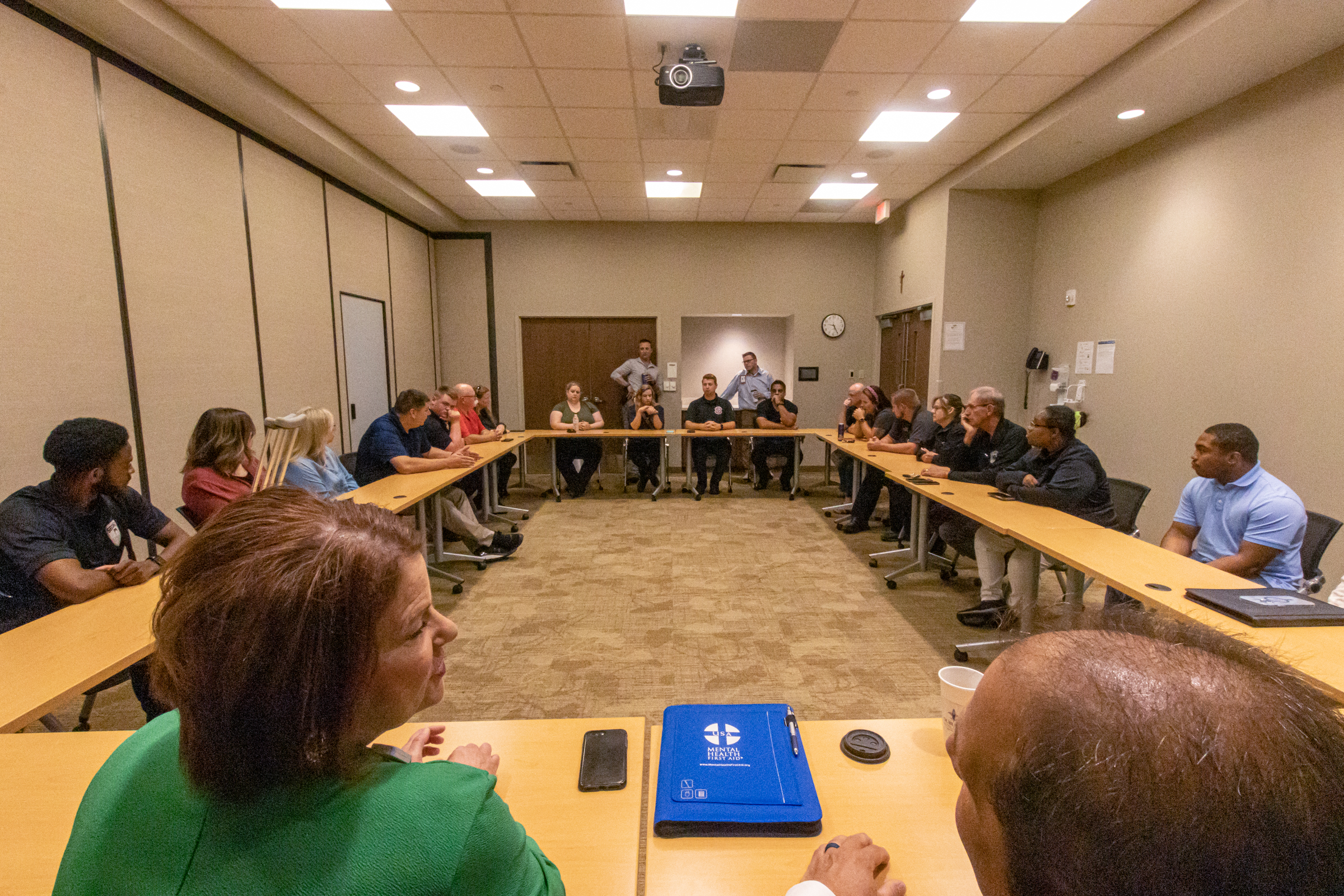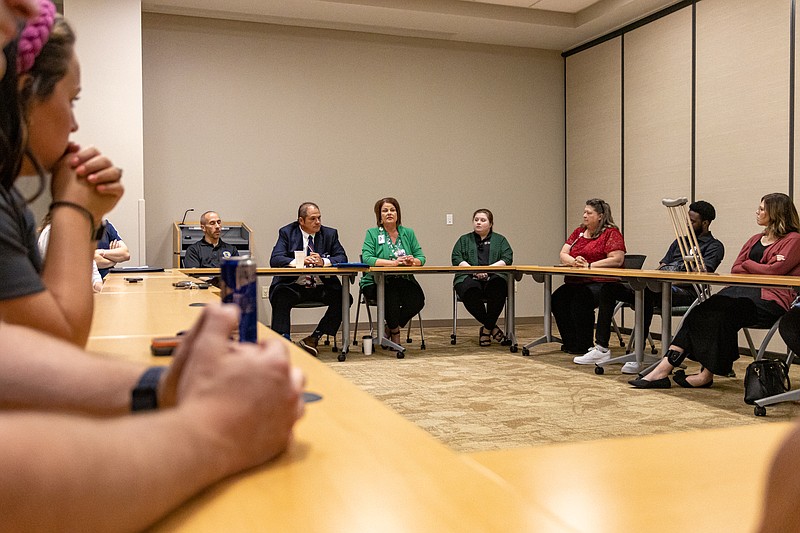Area law enforcement officers, security guards and first responders met Friday morning at SSM Health St. Mary's Hospital for a final seminar in Crisis Intervention Team (CIT) training.
The group has been getting education and training from St. Mary's Behavioral Health team all week. The full program consisted of five days and 40 hours of training in order for the participants to get certified in crisis intervention.
Typically, police, and sometimes first responders like EMS or firefighters, are the first to respond when someone with a mental illness is having a crisis. The CIT training is meant to teach law enforcement and first responders how to de-escalate these situations and help the individual in crisis so they can be brought in for treatment.
From 9-10 a.m. Friday, the CIT training participants wrapped up their week of training by learning what happens to individuals once they've been taken to St. Mary's.
There to speak was Beth Berhorst, the manager of outpatient behavioral health for SSM Health; Joseph Matherne, the security manager for St. Mary's; Cris Campbell, the director of St. Mary's emergency department; and Cynthia Nichols, the manager of inpatient behavioral health for SSM.
"We appreciate you guys taking the time in being trained and educated more about mental health and mental health patients. As we all know, there's a big increase in the number of people needing help with mental health and, at the same time, there are very limited resources," Berhorst said.
Berhorst said the purpose of Friday's session was to walk law enforcement and first responders through the journey patients take when they're brought into St. Mary's for a mental health crisis.
Campbell told the 20 or so participants that once someone is brought into the emergency department, they go through triage to see what kind of care they need.
If they've been brought in for a mental health crisis, they're brought to a "safe room" where they change into paper scrubs and have their belongings removed while they're evaluated by hospital staff.
The safe rooms are quite different from standard emergency department rooms. The beds don't have any space underneath and are bolted to the floor. The chairs are weighted, so they're harder to pick up and throw. All of the usual equipment you'd see in a triage room is locked away in cabinets with keypad-protected locks.
Even the doors for these rooms a different. Within each door is another door; one that can only be opened from the outside and swings outward, so if a patient blocks the door with a chair, staff can still enter the room.
Patients are given physical evaluations to make sure they're not in any immediate danger before receiving a psychological evaluation to see if they need to remain in the hospital's care.
If a patient requested to be brought to St. Mary's or came in on their own, they can enter the hospital's care voluntarily and that's that.
If the patient was brought in involuntarily by law enforcement or EMS, or they change their minds after arriving and tell staff that they're fine, whoever brought them in will have to sign an affidavit so they can be held involuntarily for 96 hours.
That's when they go to the inpatient behavioral services unit.
Nichols said the hospital's inpatient unit really serves as a way station as staff try to find placement for the patients. The placement could be a mental health facility, a shelter or another place, but regardless, patients stay at St. Mary's until they have somewhere to go.
That's not an exaggeration. Ralph Jobe, the public administrator for Cole County, shared a story about one of his clients who stayed in the behavioral health unit for six months until placement could be found.
"I had a young female, maybe 30, and she had eloped from Mary's Manor and she was very violent. They got her up here and you all kept her for six months," Jobe said.
Berhorst said she remembered the patient and the time she spent there. She recalled staff making efforts to take the woman outside on walks so she wasn't spending every day for six months indoors.
Typically, patients only stay in the unit for three to seven days, Nichols said.
In the behavioral health unit, patients don't get personal devices and can't eat in their rooms. There's one television for the unit, so patients have to sign up to pick what everyone watches.
Nichols said the patients do activities, whether it's drawing, playing Wii, making crafts or playing music. They also do group therapy and meet with their doctors to get treatment and work toward getting discharged.
Once a patient has been discharged, Berhorst said, outpatient services start.
Outpatient care for behavioral health patients includes psychiatric care and therapy. Patients who've been discharged regularly meet with a psychiatrist to establish and maintain treatment via medication.
They also do group therapy at the outpatient care clinic on Edgewood Drive. Some patients come as often as two to three times per week, while others meet less frequently.
With the week's training done, everyone who participated in all five days is now certified in crisis intervention. With participants from the Jefferson City Police Department, Jefferson City Fire Department, Cole County EMS, Lincoln University, Lake Regional Hospital and the University of Missouri, that training will be making its way into several communities in Mid-Missouri.
 Josh Cobb/News Tribune. The Behavioral Health team at St. Marys Health held a mental health crisis response training for Jefferson City area Police Officers and First Responders on Friday morning. Security Manager at St. Marys Joseph Matherne listens as the Manager of Outpatient Behavioral Health at St. Marys Beth Berhorst answers questions from the group.
Josh Cobb/News Tribune. The Behavioral Health team at St. Marys Health held a mental health crisis response training for Jefferson City area Police Officers and First Responders on Friday morning. Security Manager at St. Marys Joseph Matherne listens as the Manager of Outpatient Behavioral Health at St. Marys Beth Berhorst answers questions from the group. Josh Cobb/News Tribune. The Behavioral Health team at St. Marys Health held a mental health crisis response training for Jefferson City area Police Officers and First Responders on Friday morning. Manager of the Behavioral Health Inpatient Unit at St. Marys Cynthia Nichols answers questions from the group.
Josh Cobb/News Tribune. The Behavioral Health team at St. Marys Health held a mental health crisis response training for Jefferson City area Police Officers and First Responders on Friday morning. Manager of the Behavioral Health Inpatient Unit at St. Marys Cynthia Nichols answers questions from the group. Josh Cobb/News Tribune. The Behavioral Health team at St. Marys Health held a mental health crisis response training for Jefferson City area Police Officers and First Responders on Friday morning. Members of the Behavioral Health Team at St. Marys Hospital, Jefferson City Police Department, Jefferson City Fire Department, and Lincoln University security attended this meeting.
Josh Cobb/News Tribune. The Behavioral Health team at St. Marys Health held a mental health crisis response training for Jefferson City area Police Officers and First Responders on Friday morning. Members of the Behavioral Health Team at St. Marys Hospital, Jefferson City Police Department, Jefferson City Fire Department, and Lincoln University security attended this meeting.
